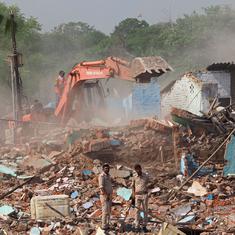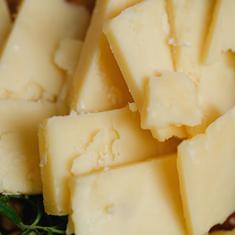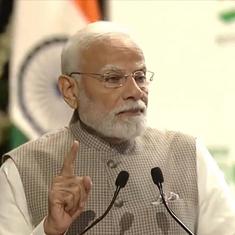No state has confirmed adoption of 2023 Model Prisons Act: Centre tells Rajya Sabha
However, 21 states and all eight union territories have adopted the 2016 Model Prison Manual, the Union home ministry said.

The Union Home Ministry told Rajya Sabha on Wednesday that no state has confirmed the adoption of the Model Prisons and Correctional Services Act, 2023 in their jurisdictions.
However, Minister of State for Home Affairs Bandi Sanjay Kumar said that 21 states and all union territories have adopted the Model Prison Manual, 2016. The manual seeks to bring in uniformity in the basic principles governing prisons and correctional institutions in the country.
The Model Prisons and Correctional Services Act, meant to be a guiding document for states, addresses the gaps in the Prisons Act, 1894. Currently, the 1894 law, along with state manuals, defines the framework for jail administrations in the country.
The 2023 Act contains provisions for security assessment, individual sentence planning, grievance redressal mechanisms and the use of technology, among others. In May 2023, the Centre said that states and union territories can adopt the Model Prisons Act with any necessary modifications, and then repeal the Prisons Act (1894), the Prisoners Act (1900) and the Transfer of Prisoners Act (1950).
As per the Constitution, state governments are entrusted with prison administration. Kumar on Wednesday told the Rajya Sabha that states must allocate budgets for infrastructure like building prison libraries.
In December, the ministry amended the prison manual rules to prohibit discrimination and the segregation of prisoners on the basis of caste.
The changes came more than two months after the Supreme Court on October 3 struck down the prison manual rules, saying that they promoted caste discrimination in jails by allocating prisoners from oppressed communities to carry out menial jobs in jails.
The October 3 order came on a petition filed by journalist Sukanya Shantha, following her investigative reporting series in The Wire on caste-based discrimination and segregation in jails. The petition highlighted that prison manuals in several states promote such discrimination.
The reporting found that the division of labour was being determined on the “‘purity-impurity’ scale, with the higher castes handling only work that is considered ‘pure’ and those lower in the caste grid being left to carry out the ‘impure’ jobs”.
Also read: Centre amends prison manuals to prohibit caste discrimination in jails









